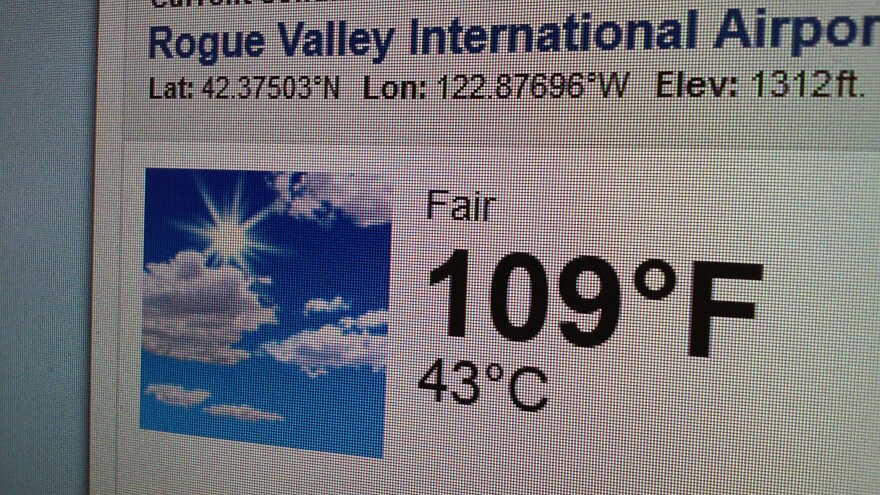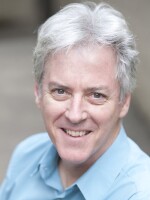The total eclipse of the sun can't come soon enough for a region sweltering through some of the highest temperatures in decades.
Records fell in cities in Oregon and California on Tuesday, with greater highs expected on the Oregon side a day later.

The Medford airport reported 109 degrees at 5 PM Wednesday, with a few hours of sunshine still ahead. Redding reported 110 at the same time. Even Eugene reported 102.
One unusual mitigating factor: wildfire smoke gathering in the valleys may diffuse the sunlight enough to blunt the high temperatures by a degree or two.
Otherwise, the weather offers no relief for people forced to spend time out-of-doors. Several communities opened cooling shelters for people to come indoors, get a cool drink of water, and enjoy air conditioning.
Medford's Salvation Army office opened a cooling shelter on July 26th to provide some daytime respite from the heat. The city of Ashland announced the planned opening of a cooling shelter on Wednesday and Thursday at Temple Emek Shalom, open from 12:30 PM to 5:30 PM.

Nature will provide no break for a while; an Excessive Heat Warning is in effect until 8 PM Friday (August 4). Forecasters say a high pressure ridge remains parked over the region.
One small plus: there's very little moisture in the atmosphere, reducing the chance for thunderstorms. But long-range forecast models show the chance could grow early next week, while temperatures finally back off a few degrees. "Normal" for Medford at this time of year is in the mid-90s.



